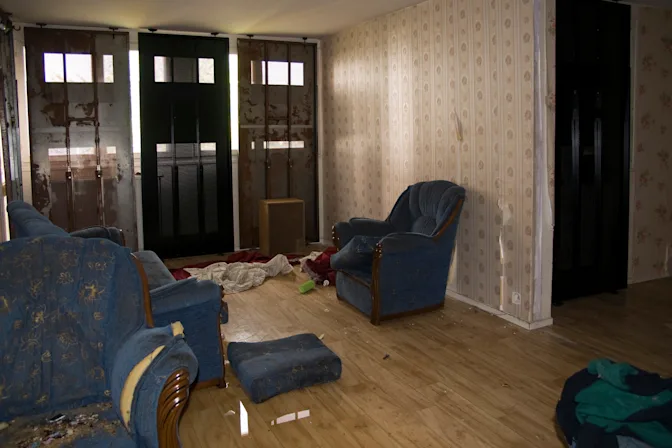
Squatting in America: How It's Legal and Where It's Happening
As cities grapple with housing shortages and vacant properties, squatting has become an increasing concern across the U.S. But where is this issue most prevalent, and what rights do they have? Let's break down where squatting is most common and explore how states address property rights.
Decrease in Affordable Housing
A report from the Harvard Joint Center for Housing Studies revealed that in 2022, a record-breaking 22.4 million renter households, roughly half of all renters in the U.S., were paying over 30% of their income toward rent. Additionally, the number of affordable rental units priced below $600 declined to 7.2 million in 2022.
States That Are Significantly Impacted
An analysis of squatting trends reveals that several states experience high rates of squatting. Leading the list are Georgia, Florida, and Texas, each with unique conditions that make them more susceptible to squatting incidents, according to a survey by the National Rental Home Council. High housing costs in urban areas, combined with a significant number of vacant properties, create an environment where squatting can thrive.

High Number of Incidents in Key Cities
A recent NRHC survey of single-family rental homeowners found that squatting affected approximately 1,200 homes in Atlanta alone, 475 homes in Dallas-Fort Worth, and around 125 homes in Florida's Orange County, which includes Orlando. Since this is the council's first survey on squatting incidents, it remains unclear if these figures reflect an increasing trend, as reported by MarketWatch.
Florida Governor Ron DeSantis recently signed a law permitting homeowners to request immediate police assistance in removing squatters from their property. This law also enforces criminal charges for those who submit fake leases or cause over $1,000 in property damage. Similarly, Georgia lawmakers passed new legislation last week that officially criminalizes squatting.
Squatters and Their Legal Rights
Yes, in many states, squatters have some legal protection under specific conditions. Squatters' rights laws vary widely by state, making it essential for property owners to understand the regulations in their area. In states like California and New York, squatting laws can enable individuals who openly occupy a vacant property to claim "adverse possession" rights. This allows them to eventually obtain legal ownership if they meet specific criteria, like continuous occupation over a set number of years.
Squatters' rights were originally created to give urban residents affordable housing options by allowing them to live in abandoned or unused properties or settle on unclaimed land. These rights aimed to prevent property owners from resolving disputes independently, encouraging legal solutions instead of confrontations.
For example, in 2008, Oakland resident Steven DeCaprio moved into and renovated an abandoned house, eventually winning both occupancy and ownership through a legal process known as adverse possession. In California, this requires five years of continuous occupancy, along with staying current on property taxes — an often-challenging requirement that local authorities may still dispute.
How Squatters Impact Property Owners
The issue of squatting and property reclamation is murky, with squatters' rights laws adding layers of complexity, particularly in states that protect squatters with lengthy legal processes for removal. Advocates argue these protections offer crucial housing for those with few alternatives, suggesting that resolving disputes legally helps avoid conflict. Yet, recent anti-trespassing laws in states like Georgia and Florida attempt to simplify things by demanding proof of residency from squatters — or criminal consequences — but whether these measures clarify or further complicate the issue is up for debate.
Balancing Squatters' Rights and Property Ownership
With squatting on the rise in states like Georgia, Florida, and Texas, new laws are strengthening property owners' rights by streamlining eviction processes. However, advocates argue squatters' rights are essential for supporting those facing housing challenges. Finding a fair balance between property security and housing access will be crucial as these policies continue to evolve.
References: Squatting Map Shows Cities With Highest Number of Homes Taken Over | Squatters' Rights by State | Squatters Rights-Everything Landlords Need to Know























